Greetings to the entire steemit community, I am pleased to introduce you to my electric grinding machine with recycled materials.
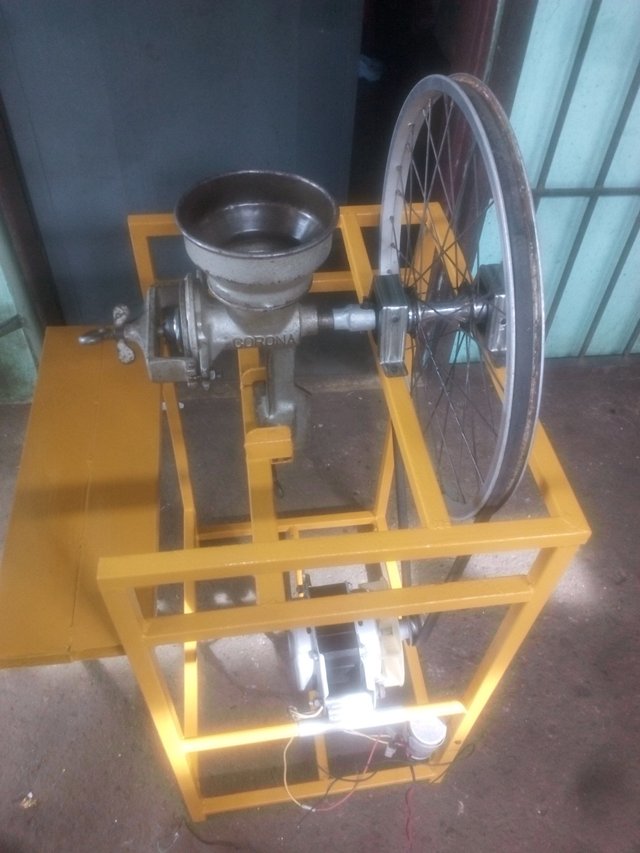
image taken from my cell phone blade l2
At present, there are several factors that motivate people to look for alternatives in the face of the crisis that exists in Venezuelan communities, also taking advantage of materials that have been disincorporated in the trash for already fulfilling their useful life or presenting failures for their original functions, doing well to the environment to be able to recycle them.
On this occasion, a domestic and artisanal electric machine was made to grind due to the need to obtain corn dough in order to eat the traditional dish in our country, such as the world known AREPA.
Used materials:
-Rin 20 inch bicycle
- Vehicle timing belt tensioner bearings.
- Iron sheet.
-tubos round.
-screws
-Motor washer Chaca chaca with its capacitor. - Truck alternator belt
-Structure of a 1x1-inch tube table. - metal water pipe.
-aluminum sheet.
The bicycle wheel is used as a main pulley, this being the one that drives the mill shaft.
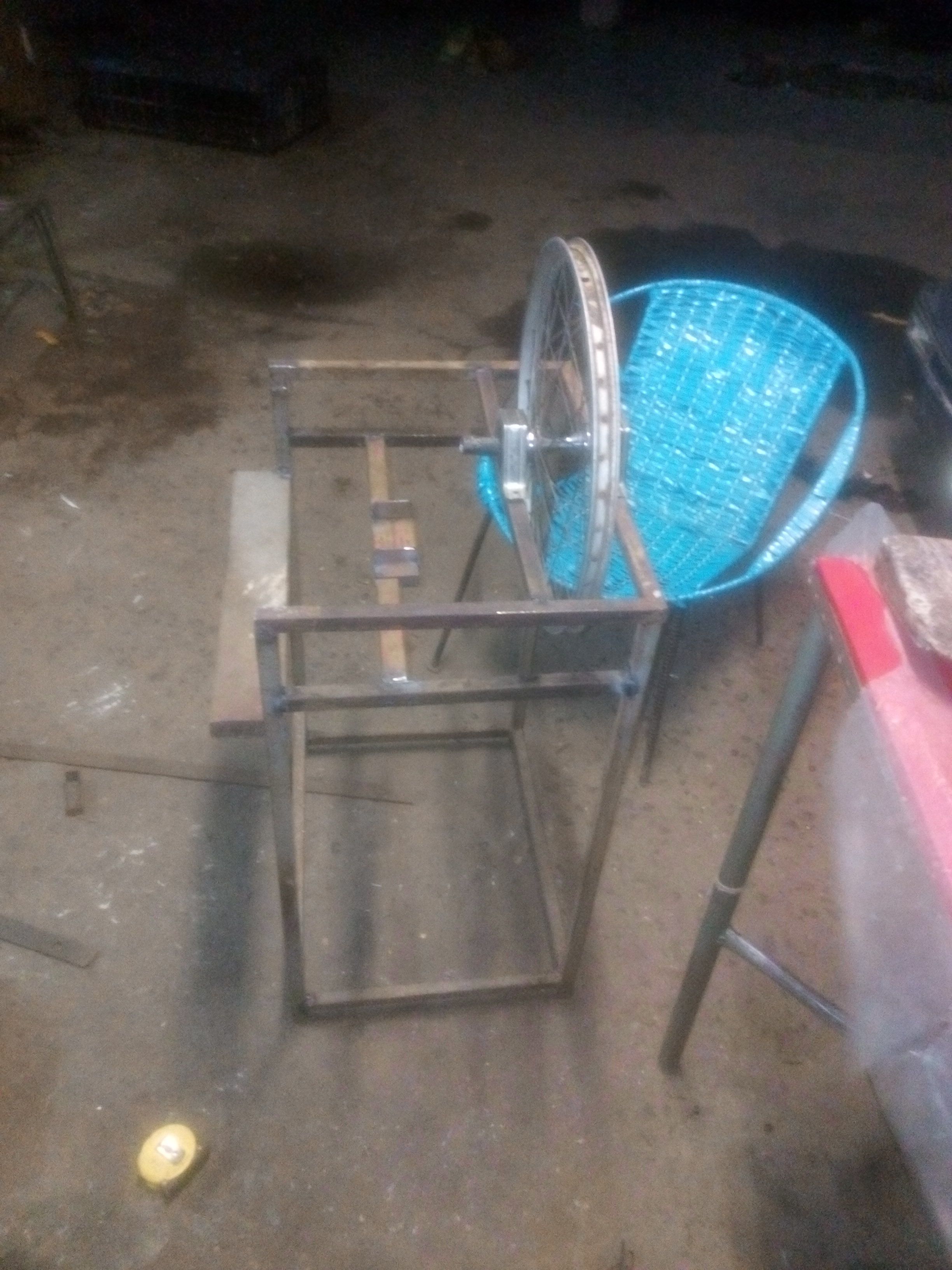
image taken from my cell phone blade l2
In the image we can see the initial stage where the wheel was adapted to the table.
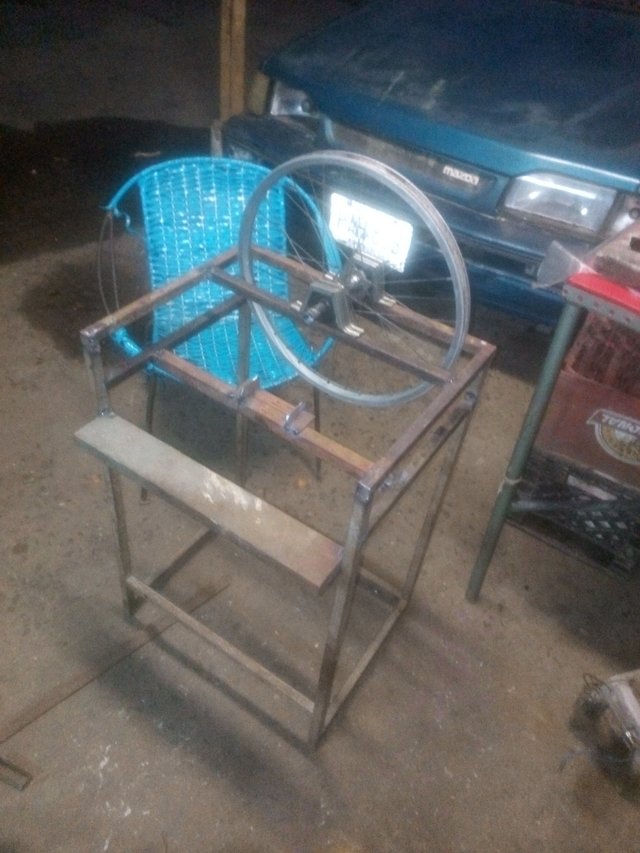
image taken from my cell phone blade l2
Presenting and aligning the mill with the axis of the wheel or main pulley.
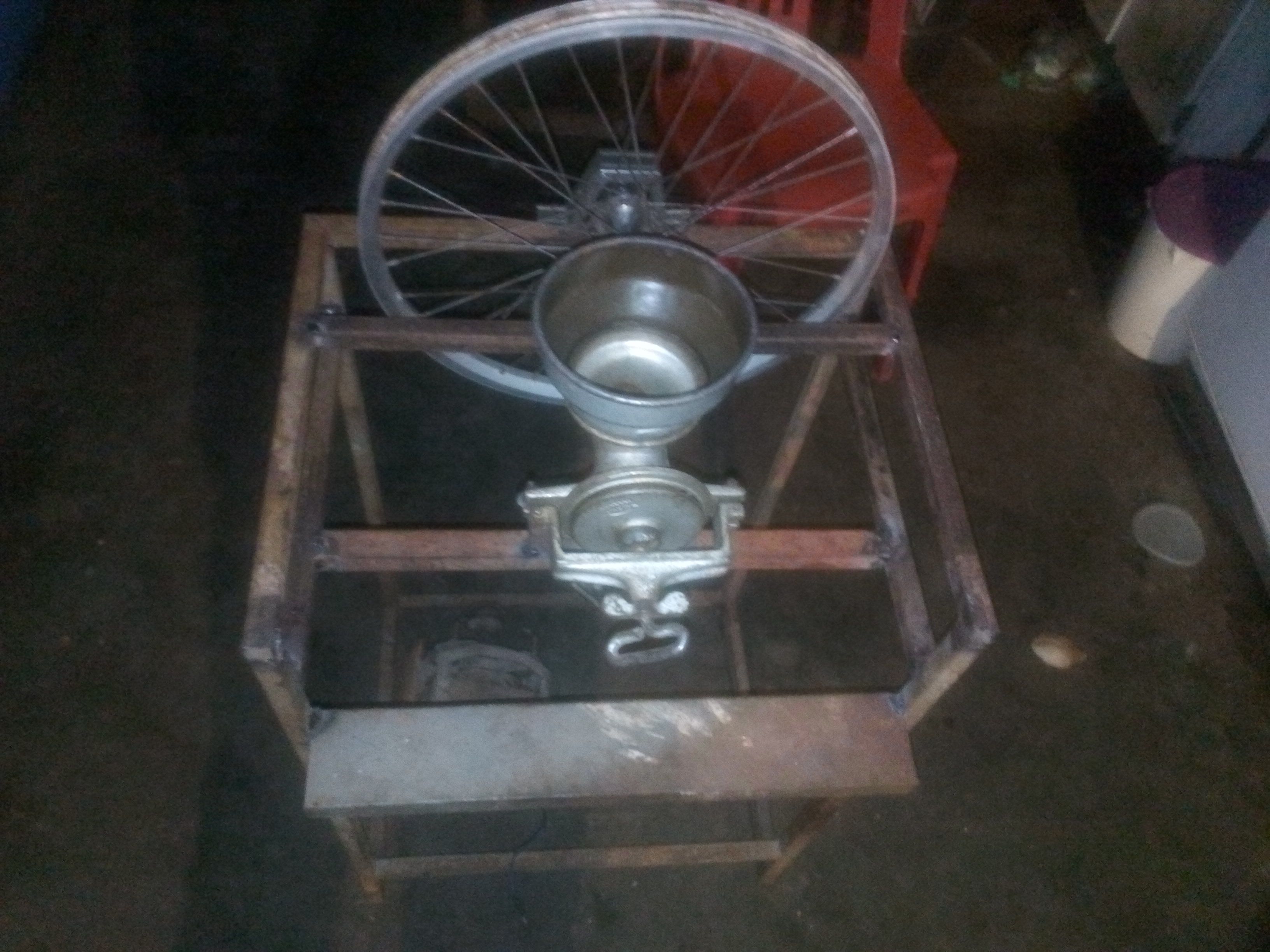
In this part the engine is presented to make the main pulley turn, the plate that is seen tied serves as a tensioner of the engine so that the belt is tight.
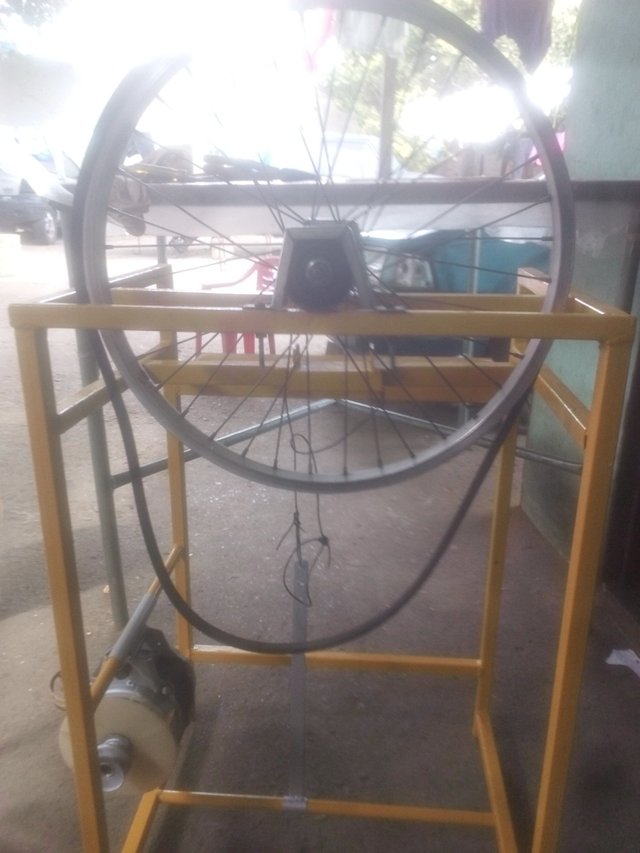
image taken from my cell phone blade l2
In this image the formwork is shown to the bearings in the form of chumasera manufactured manually with iron plate. The same one belonged to a computer table rail.
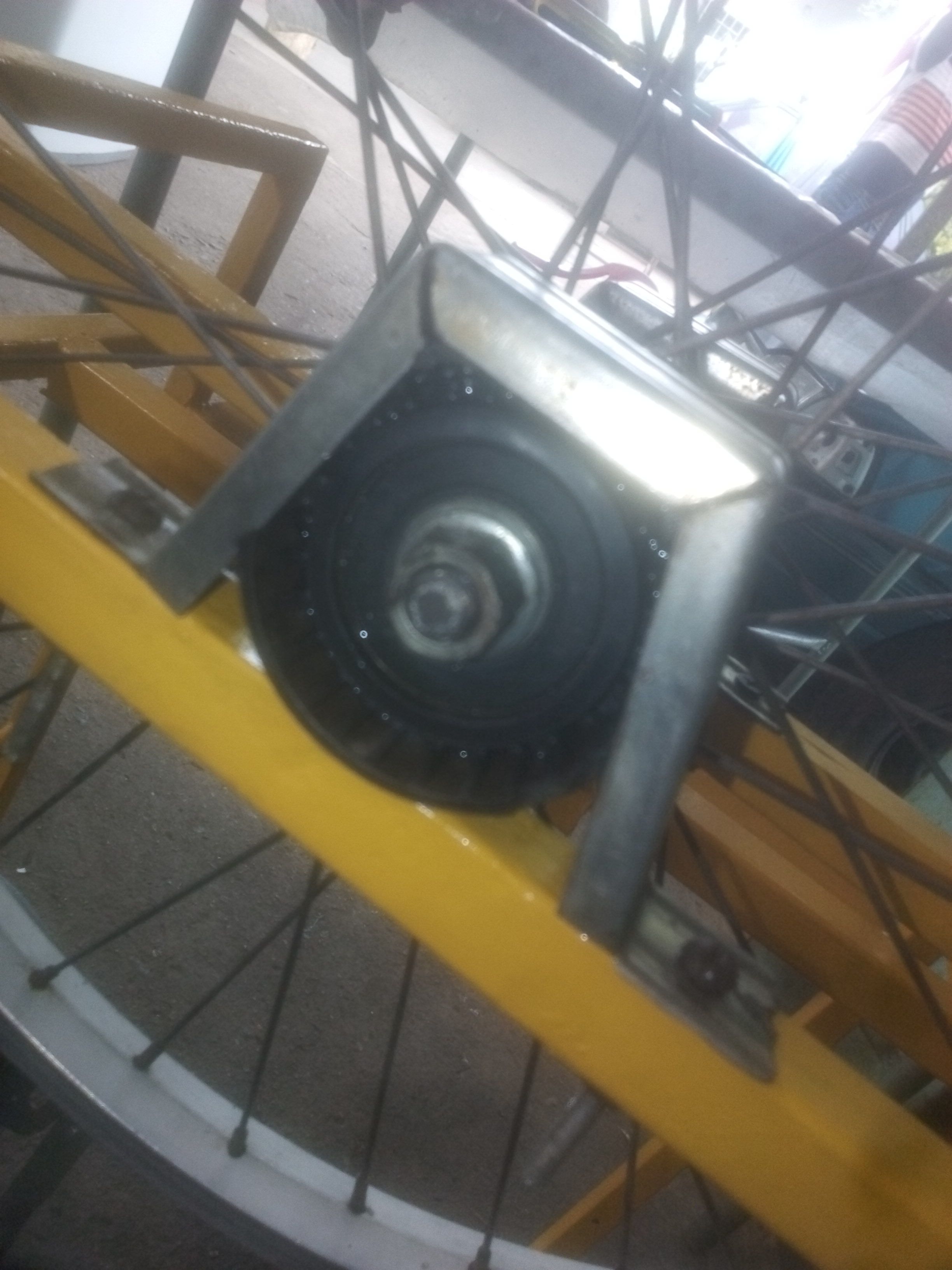
image taken from my cell phone blade l2
In this image you can see the coupling made in a traditional way like other parts.
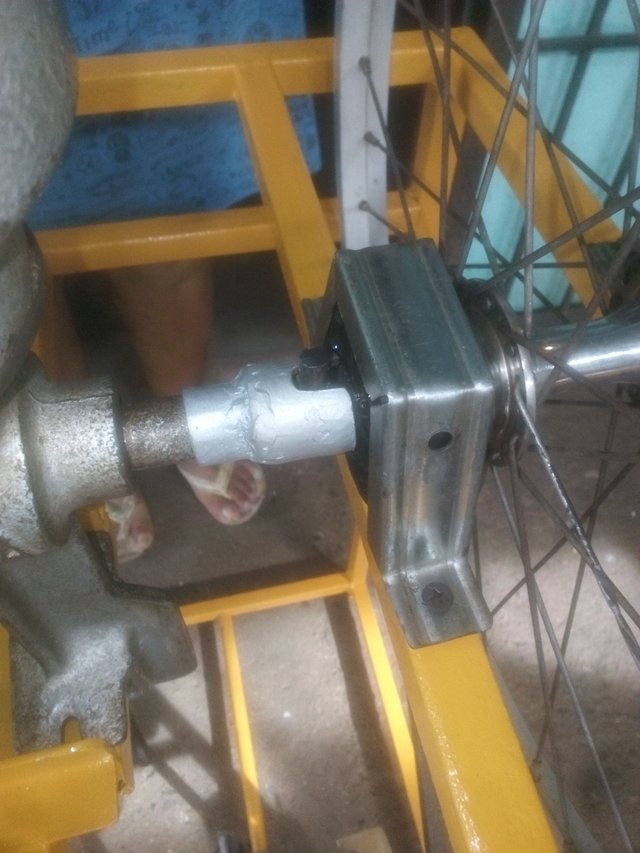
image taken from my cell phone blade l2
Below is the protective sheet that was placed on the motor for the waste.
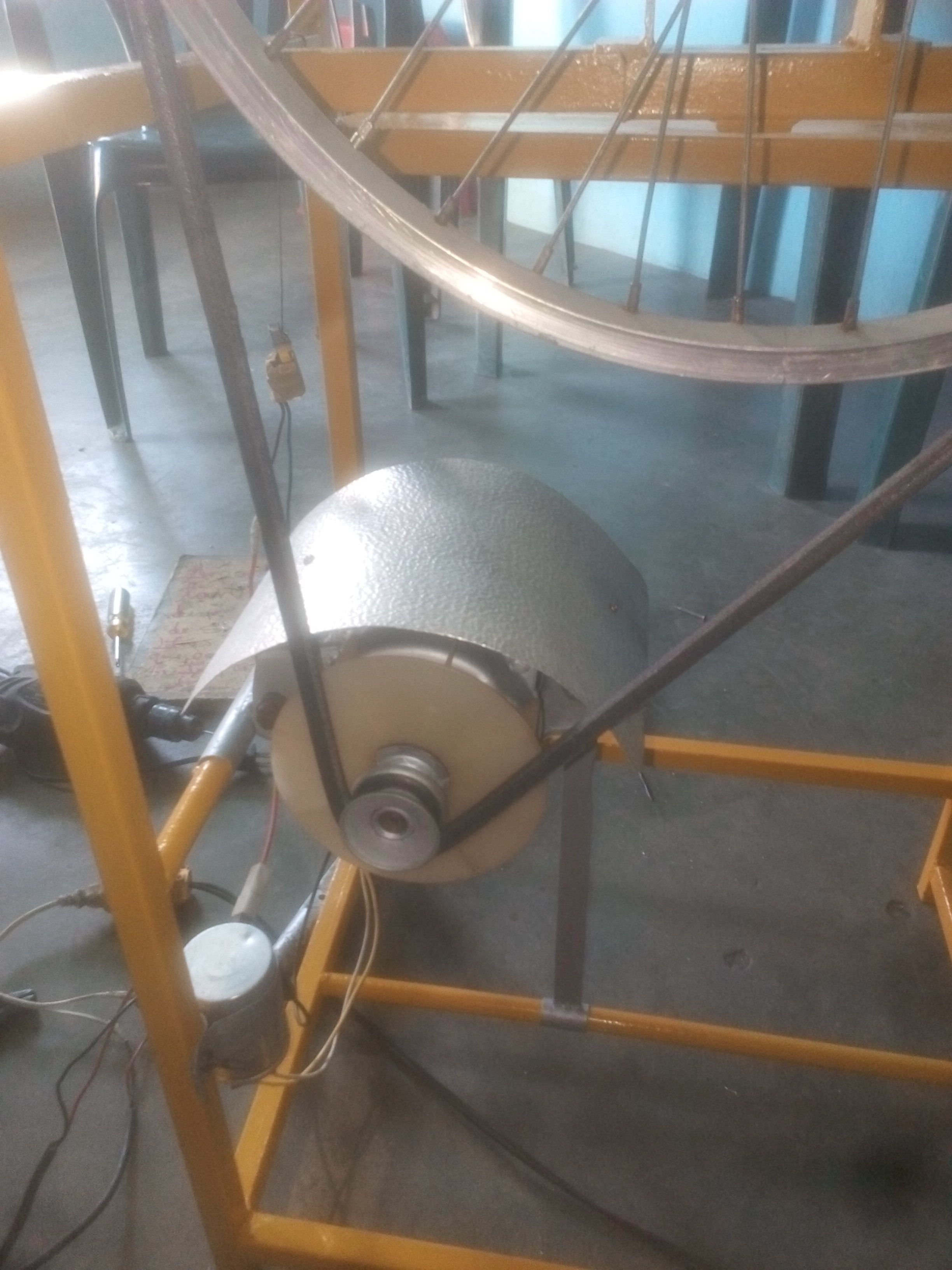
image taken from my cell phone blade l2
Below I show you the image of the first test that was done on the machine.
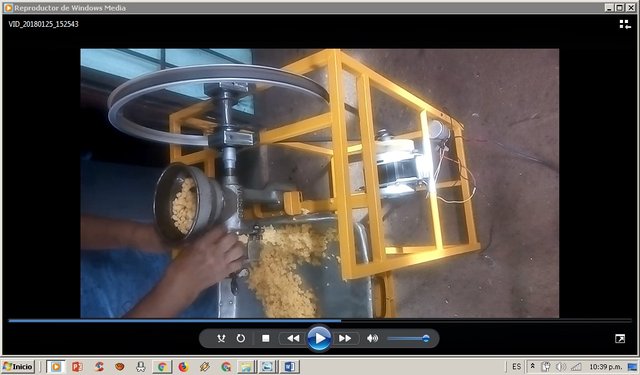
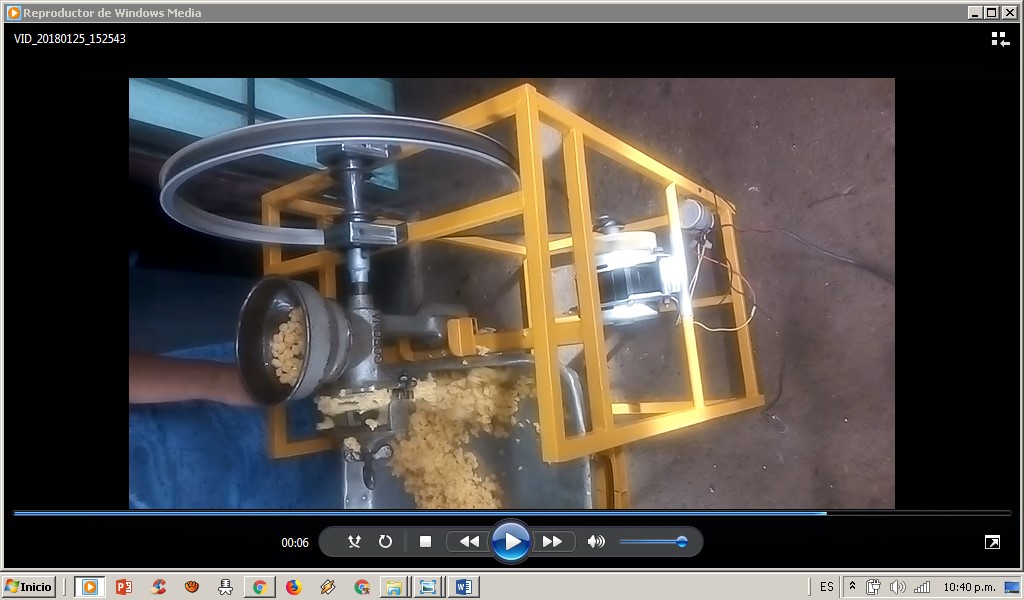
and as a final part I show you the result of the work done:
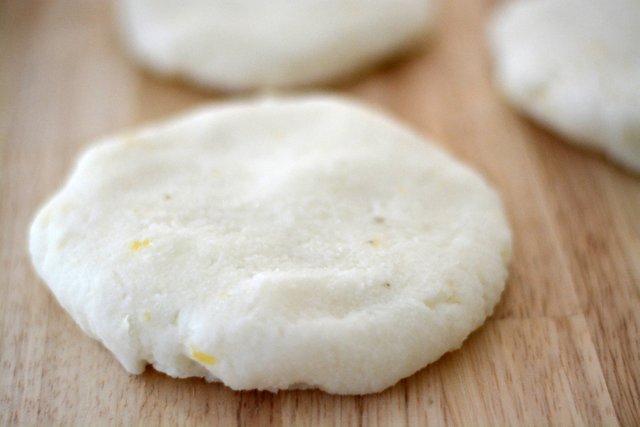
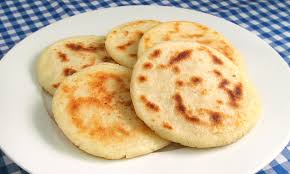
The Rich Arepas that we eat at home
I hope you liked my project, remembering that it came about due to the needs in the community where I live and made according to the available resources. Thank you very much to the community for sharing.